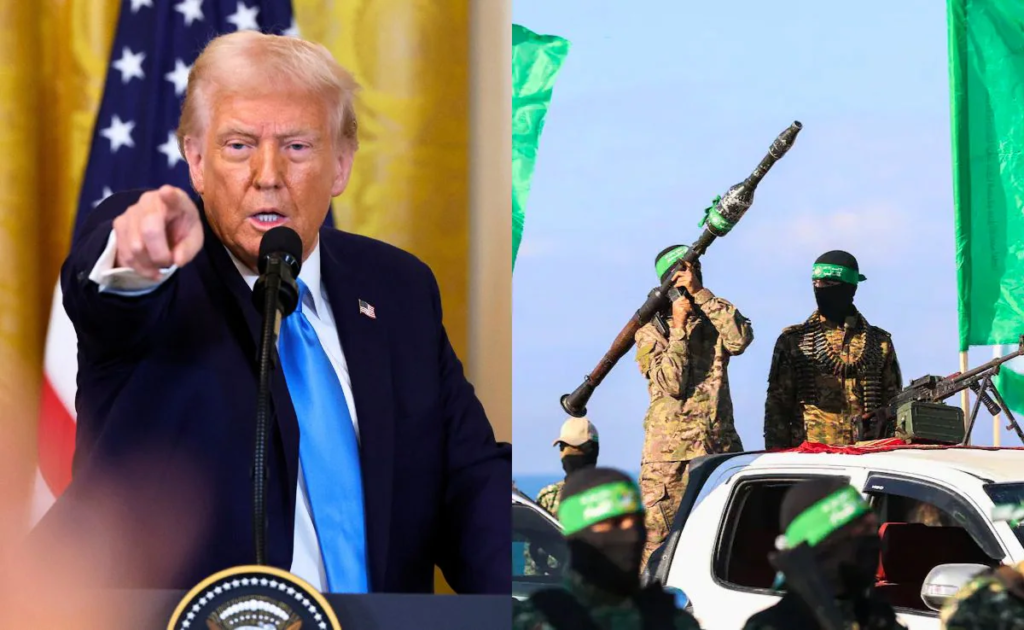Donald Trump recently announced his ambitions regarding the Gaza Strip. As the conflict between Israel and Hamas drags on, the American president, who had vowed to end the war, proposed that the region be brought under the American flag.
1/ Trump's will
Since returning to the White House, Donald Trump has had time to address several hot-button issues, including Gaza. On February 4, 2025, during a joint press conference at the White House with Israeli Prime Minister Benjamin Netanyahu, the American president proposed that the United States “take control” of the Gaza Strip. The idea would be for Gaza to become the new Côte d’Azur of the Middle East. This would strengthen the American position in the region while giving Israel a major territorial ally.

Regarding the Palestinian population, Donald Trump is counting on neighboring Arab countries to welcome them.
The question now is how the United States could take control of Gaza.
The first option would be a purchase. Every time the United States has had expansionist ambitions throughout its history, it has taken steps to buy these territories, such as Alaska purchased from Russia in 1867 or, more recently, the offers made to Denmark to buy Greenland. However, today, this option seems unimaginable. First, because there is no one to negotiate with. Hamas, which rules Gaza, would never agree to sit at the negotiating table with Trump. It would go against their convictions, knowing to what extent the United States represents everything Hamas is fighting against.

The other option on the table, and the most serious, would be a military intervention. Trump did not rule out using the American army to carry out this project during his press conference. The United States could quite easily overthrow Hamas if its army officially entered the conflict. The question would then be what fate would be reserved for the Palestinian population.
2/ what human consequences?
The US acquisition of the Gaza Strip would result in a new “nakba.” The term refers to the events of 1948, when hundreds of thousands of Palestinians were displaced following the creation of the state of Israel. Donald Trump has claimed that the Palestinian population would be forced to immigrate to neighboring Arab countries.

The problem? Neighboring Arab countries do not want this mass immigration into their lands. The conflict between Palestinians and Israelis has been going on since 1948. The Palestinians, having to flee, would find themselves largely forced to live in refugee camps to survive in these new countries.
There are several reasons for this reluctance on the part of neighboring Arab countries. The first is the fear of having a state within a state. There is a fear that the Palestinians will not be able to integrate into these countries that are not their own. Jordan, in 1970, led the Black September repression against the Palestine Liberation Organization (PLO) after it challenged its authority. The current fear is that a new PLO will impose itself in these countries.
For other countries, such as Jordan, it is the economy that would slow down possible immigration. Jordanian Foreign Minister Ayman Safadi has stated that Jordan, whose population is already 35,000 refugees, cannot accommodate more Palestinians. A massive influx of Palestinians would worsen unemployment in the region, creating an unstable political climate. Moreover, Arab countries do not have the necessary infrastructure that such an exodus would require, which would condemn Palestinians to live in precarious conditions.

Finally, Arab countries support the creation of a Palestinian state. The massive arrival of Palestinians on their territory would weaken their common cause aimed at having this state recognized.
3/what are the international consequences?
Israeli Prime Minister Benjamin Netanyahu called Trump's proposal "revolutionary and creative," and said Israel would be willing to cooperate in its implementation. For Israel, the U.S. presence in Gaza would help ease the pressure the country has been under since 1948. Israel would finally have a powerful ally, especially since it is the United States, the world's leading power.
The Arab countries of the region have, for their part, opposed such a scenario. Egypt, in particular, through its President Abdel Fattah al-Sisi, has reiterated that Gaza should be entirely rebuilt without displacement of the Palestinian population. Jordan has also opposed this plan, considering it too conducive to an increase in tensions in the region.

The US's main competitor, China, also opposed the US president's statement, arguing that the Palestinian issue should be resolved through multilateral negotiations and with respect for Palestinian rights. Russia also expressed its opposition to this possibility.
France, for its part, has also rejected US control of Gaza, calling the proposal a "serious violation of international law."
Donald Trump is thus continuing his expansionist policy with this new declaration. However, it seems difficult to imagine seeing the United States take control of Gaza. If they can rely on their status as the world's leading power as well as the influence of their president to make themselves heard, they have only one possible option: military invasion.

A military intervention would, however, be an extremely risky move for the United States. First, it would increase tensions in the region. Hamas would gain credibility and influence by showing that the West, embodied by the United States, is once again targeting Gaza.
Moreover, the United States would be greatly weakened on the international stage. It would see the vast majority of world powers oppose this intervention, including its closest allies such as France, the United Kingdom and Egypt. Moreover, it would give China and Russia a justification to pursue their own expansionist policies. Russia would legitimize the continuation of the fighting in Ukraine, and China the invasion of Taiwan, if the United States were to take control of Gaza.

Despite all the opposition to these plans, the United States could still pursue this option. World opinion had already not stopped them in 2003 during the invasion of Iraq. With Donald Trump in power, the question of whether the United States will turn a blind eye to these threats is worth asking. The consequences of the American intervention in Iraq, both on a human and geopolitical level, have been numerous. The Middle East and countries like Iraq or Syria have never recovered, and terrorism has had its golden age. A new question to ask now is: Has the United States learned from its mistakes or is it ready to repeat them? Hard to say.

RELATED POSTS
View all




